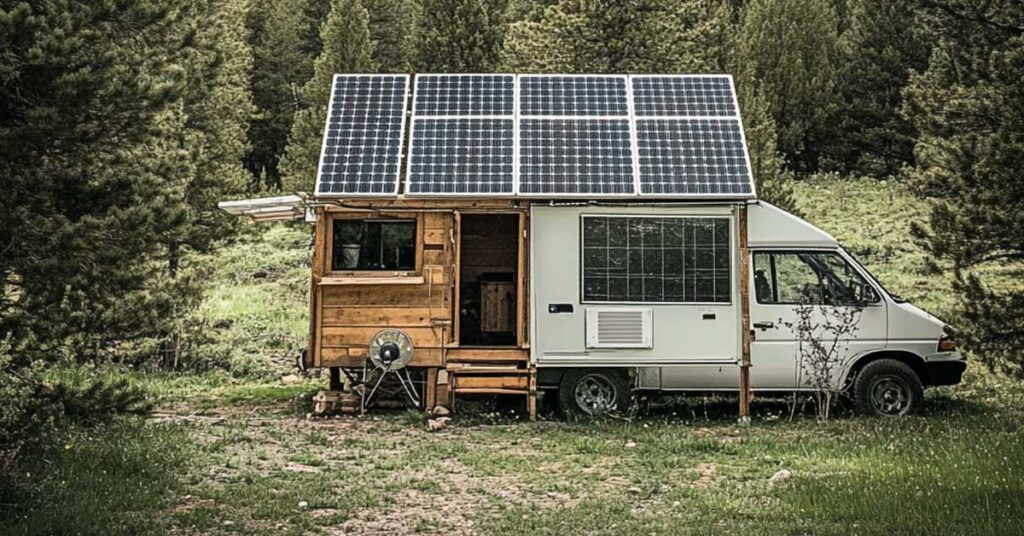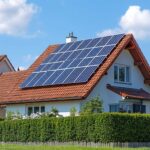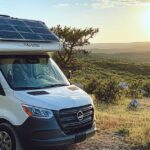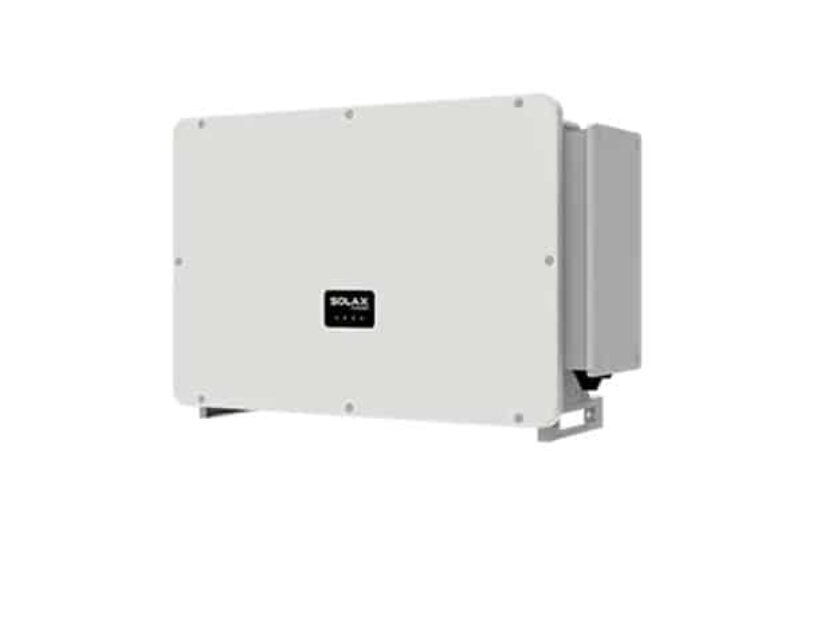Living off-grid offers a remarkable opportunity to disconnect from traditional power sources and embrace energy independence. With rising energy costs, environmental concerns, and the desire for self-sufficiency, more people are exploring off-grid solutions to power their homes. In this article, we’ll dive deep into the specifics of living off-grid, focusing on solar power and battery systems, while offering practical insights into how to make the transition effectively.
You May Also Like: Difference between On-Grid and Off-Grid Inverters
What Does Living Off-Grid Mean?
Living off-grid refers to disconnecting from the public utility grid and generating your own power, typically using renewable energy sources like solar power. It’s a lifestyle that demands careful planning but offers long-term rewards, including energy independence, reduced environmental impact, and potentially lower costs over time.
Unlike grid-tied systems that rely on the public grid as a backup, off-grid systems must be entirely self-sufficient. This means that when designing an off-grid setup, you need to consider energy storage solutions (batteries) to ensure power availability during low sunlight periods or at night.

You May Also Like: Difference Between Hybrid and Off-Grid Inverter
Why Choose Solar Power for Living Off-Grid?
Solar power is one of the most popular energy sources for living off-grid due to its reliability and sustainability. Solar panels convert sunlight into electricity, which can then be used to power your home. However, because sunlight is intermittent, you’ll need to store excess energy produced during the day for use when sunlight isn’t available. That’s where batteries come in.
Components of an Off-Grid Solar Power System
Building an off-grid solar power system involves several key components working together to generate and store energy. Let’s explore each one in detail:
1. Solar Panels
Solar panels are the heart of your off-grid system. They capture sunlight and convert it into direct current (DC) electricity. The amount of energy produced depends on factors like the size of the panel array, geographic location, and the efficiency of the solar cells. Monocrystalline panels, for example, tend to be more efficient, making them a popular choice for off-grid setups.
2. Charge Controller
A charge controller regulates the flow of electricity from the solar panels to the batteries, preventing overcharging and ensuring optimal battery health. It also protects against reverse current flow, where electricity flows back to the panels during the night, potentially draining the batteries. Modern charge controllers come with advanced features like MPPT (Maximum Power Point Tracking) to maximize energy harvest.
You May Also Like: Best Meditation Apps of 2024
3. Batteries
In an off-grid system, batteries are essential for storing the electricity generated by solar panels. They ensure a consistent power supply when the sun isn’t shining. The two most common types of batteries for off-grid systems are lead-acid and lithium-ion. While lead-acid batteries are cheaper upfront, lithium-ion batteries are more efficient, require less maintenance, and last longer, making them a better long-term investment.
4. Inverter
Since most household appliances run on alternating current (AC), the inverter’s job is to convert the DC electricity from the solar panels and batteries into usable AC power. Off-grid inverters must be sized appropriately to handle the peak load of your home and ensure a stable power supply.
Understanding Your Energy Needs
Before transitioning to living off-grid, it’s critical to assess your energy consumption. This will determine the size of the solar panel array, battery capacity, and inverter you’ll need. Start by calculating your daily energy usage in kilowatt-hours (kWh). Consider which appliances you’ll run, how often, and whether you’re willing to make lifestyle changes to reduce energy consumption.
For instance, energy-hungry appliances like air conditioners and electric water heaters may not be practical in an off-grid setup unless you have a large solar array and battery bank. Conversely, energy-efficient lighting, refrigeration, and other low-consumption devices are ideal for off-grid living.
You May Also Like: Mastering Voice Search and Local SEO: Boost Your Business Visibility in 2024
Battery Storage: Ensuring Power Reliability
The cornerstone of any off-grid system is its battery storage. While solar panels produce electricity only during daylight hours, batteries store this energy for use at night or on cloudy days. Here are the key considerations when selecting a battery system for off-grid living:
1. Battery Capacity
Capacity is measured in kilowatt-hours (kWh) and represents the total amount of energy a battery can store. To ensure your home has enough power during periods without sunlight, calculate your total daily energy usage and multiply it by the number of days you want to store energy for. A three-day storage capacity is a good rule of thumb for most off-grid systems.
2. Battery Efficiency
Not all batteries are created equal. Lithium-ion batteries, for example, are more efficient than lead-acid batteries, meaning they lose less energy during the charging and discharging process. Higher efficiency means better use of the energy you generate, reducing the size of the battery bank needed for your home.
3. Lifespan and Maintenance
Battery lifespan is crucial for off-grid living. Lead-acid batteries typically last around 5-10 years, while lithium-ion batteries can last up to 20 years with proper maintenance. Lithium batteries also require less maintenance, making them a more convenient option for those seeking a low-maintenance off-grid system.
You May Also Like: Understanding the Link Between Motivation and Mental Health
Solar Power and Batteries: A Match Made for Off-Grid Living
The combination of solar power and batteries forms a robust system for living off-grid. While solar panels provide the energy, batteries ensure that you can maintain a continuous power supply even when sunlight is unavailable. By carefully sizing your system, selecting high-quality components, and adjusting your energy habits, you can create an off-grid setup that suits your lifestyle.
Challenges and Considerations of Living Off-Grid
Living off-grid isn’t without its challenges. To successfully transition, it’s important to consider the following factors:
1. Weather Dependence
Solar power is highly dependent on weather conditions. In regions with frequent cloud cover or long winters, you may need to oversize your system or incorporate alternative energy sources like wind or micro-hydro power.
2. Initial Investment
The upfront cost of setting up an off-grid solar system can be substantial. While prices for solar panels and batteries have dropped significantly over the years, the initial investment can still range from $10,000 to $30,000 or more, depending on your energy needs.
3. Energy Management
Living off-grid requires a more mindful approach to energy usage. You’ll need to monitor your battery levels and adapt to changing conditions. For example, you might reduce appliance use during periods of low sunlight to conserve energy.
You May Also Like: 14 Best Things To Do in Bangkok: A Complete Guide
Is Living Off-Grid Right for You?
The decision to live off-grid is highly personal. For some, the environmental benefits and independence from rising energy prices make the switch a no-brainer. For others, the lifestyle changes required may seem daunting. To decide if off-grid living is right for you, consider factors like your geographic location, energy needs, and willingness to invest time and money in creating a reliable, self-sufficient energy system.
Conclusion
Living off-grid with solar power and batteries offers an incredible opportunity for energy independence and environmental stewardship. While the path to living off-grid requires careful planning and investment, the rewards of self-sufficiency and reduced carbon footprint are significant. By understanding the components of an off-grid system and how to manage your energy needs, you can create a sustainable lifestyle that frees you from the constraints of traditional power sources.
Whether you’re looking to reduce your environmental impact, save money on electricity bills, or simply gain the freedom of energy independence, living off-grid with solar power is a viable and rewarding solution.





